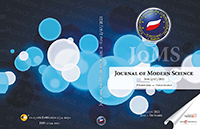The influence of religion in the time-reckoning
The influence of religion in the time-reckoning
The influence of religion in the time-reckoning
Author(s): Jaime Bonet NavarroSubject(s): Law, Constitution, Jurisprudence
Published by: Wydawnictwo Akademii Nauk Stosowanych WSGE im. A. De Gasperi w Józefowie
Keywords: Calendar; calculation; religion; year; month; reckoning;
Summary/Abstract: ObjectivesThe advancement of humanity has culminated in artificial intelligence and it cannot do without the measurement of time and the existence of different calendars, such as the one used today, which has notable religious influences. Starting from a reflection on the relationship among artificial intelligence, the fundamental right of religious freedom, and the various types of calendars, the study focuses on highlighting the religious influences which are inside the calendar used throughout the world, their months and days. This calendar is based on the Roman calendar, which was reformed by Julius Caesar, and corrected centuries later, by the reform carried out by Pope Gregory XIII. This is followed by a brief exposition of a purely religious calendar such as the Muslim one, as well as the frustrated attempts to establish secular calendars during the French and Russian revolutions, in the 18th and 20th centuries, respectively.Material and methods. Reading and synthesis of the bibliographic sources referring to the Roman calendar, the Gregorian reformation, and the attempts of secular calendars.Results. The calendar, used today in the world, is based on the Roman one, which already has an undeniable religious component, later increased after the reform of Pope Gregory XIII, although there are other religious calendars such as Muslim one, which are recognized in a limited way,. Conclusions. The calendar that organizes and on which we base our lives, like so many other facets of the world in which we live, such as our organization as a society, our customs, and ways of life, are steeped in religious elements or influences. The attempts to achieve its secularization have failed, at least in its formal aspect, as has happened with the frustrated attempts to implant secular or strictly secular calendars.
Journal: Journal of Modern Science
- Issue Year: 47/2021
- Issue No: 2
- Page Range: 31-43
- Page Count: 13
- Language: English

